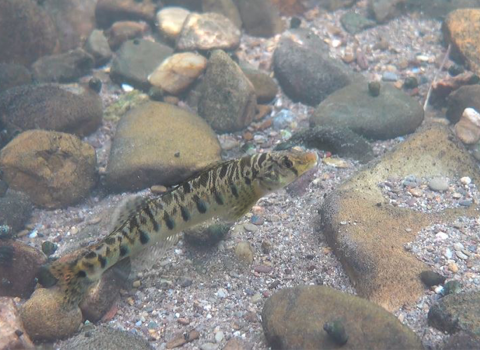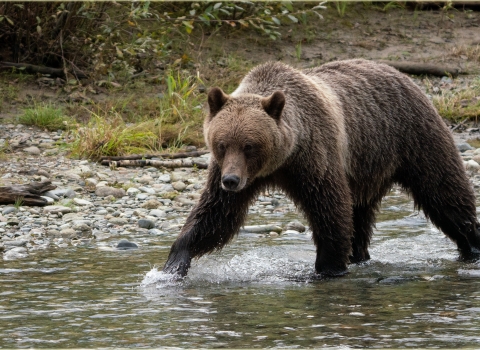Migratory birds throughout the Western Hemisphere will benefit from $4 million in grants for 32 collaborative conservation projects across the Americas, the U.S. Fish and Wildlife Service announced today.
The Neotropical Migratory Bird Conservation Act grants will leverage the Service’s investment with $16.9 million in additional partner funds—a more than four-to-one match. The projects will conserve migratory bird habitat, engage local communities in bird habitat protection, and strengthen international relations, while raising awareness of the importance of bird conservation.
“One hundred years ago, we signed the first Migratory Bird Treaty with Canada, recognizing the need to conserve shared species across international borders,” said Service Director Dan Ashe. “These projects, involving dozens of partners through many countries and habitats, show we continue to honor our commitment to protecting birds wherever they live.”
There are 386 species of neotropical migratory birds that migrate to and from the United States each year, including songbirds and shorebirds. These birds provide critical ecological functions: keeping insect and rodent populations in balance; pollinating plants and dispersing seeds to maintain habitat for other wildlife; and providing early warnings of environmental contamination. Birds are enjoyed by tens of millions of Americans, and birdwatching helps support the national economy to the tune of billions of dollars. Yet populations of many of these birds are in decline, and several species currently are considered in need of special conservation attention as a result of habitat loss, pollution, human disturbance or climate change climate change
Climate change includes both global warming driven by human-induced emissions of greenhouse gases and the resulting large-scale shifts in weather patterns. Though there have been previous periods of climatic change, since the mid-20th century humans have had an unprecedented impact on Earth's climate system and caused change on a global scale.
Learn more about climate change .
The Neotropical Migratory Bird Conservation Act of 2000 established the matching grants program to fund projects that conserve neotropical migratory birds in the United States, Canada, Latin America and the Caribbean. It is the only source of federal funds solely dedicated to this mission. Funds may be used to protect, research, monitor and manage bird populations and habitat, as well as to conduct law enforcement and community outreach and education.
This year’s grants will benefit hundreds of species in 17 countries, conserving neotropical migratory birds from breeding sites in Canada and the United States to wintering sites in Mexico, Central America and South America, and the Caribbean. Project highlights include:
- Conservation of Buff-breasted Sandpiper in South America:
$141,944 to conduct on-the-ground conservation at key wintering sites and research into habitat use and threats for to the buff-breasted sandpiper in Brazil, Uruguay and Argentina.
- Conserving Priority Important Bird Areas For Aquatic Migratory Birds:
$81,862 for monitoring, capacity building and other activities to improve the conservation of a critical area for migratory shorebird populations in coastal Ecuador.
- Conserving Golden-winged Warblers on Hump Mountain:
$200,000 to protect the 432-acre Hump Mountain Tract, part of a critical wildlife corridor in the Southern Appalachian Mountains of in North Carolina through fee-title acquisition and conservation easements.
- Ensuring Conservation Status for the Last Unprotected Forests in Caribbean Guatemala:
$101,754 for management, planning and education at a new reserve in one of the last unprotected forests in Guatemala.
For more information on funded projects for 2016 and previous years, visit http://www.fws.gov/birds/grants/neotropical-migratory-bird-conservation-act.php



